Tetra Pak U.S. and Canada 2022 Sustainability Report: Planet
Published 12-20-22
Submitted by Tetra Pak
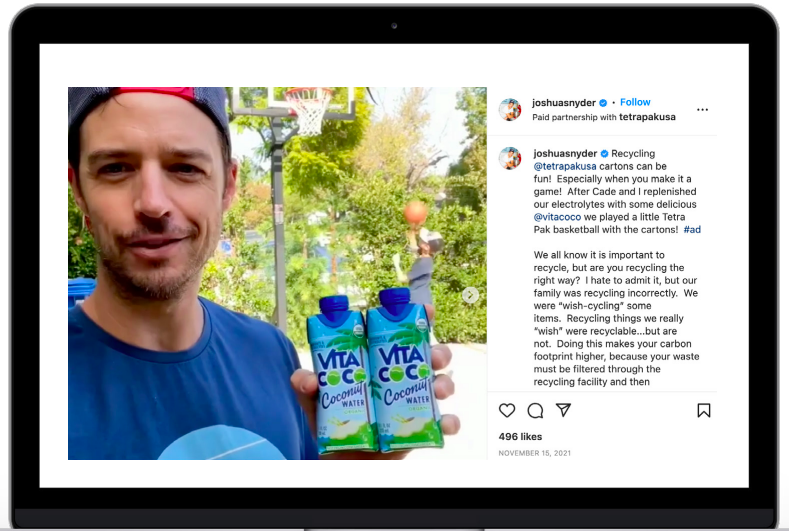
Tetra Pak 2022 Sustainability Report
Educating Consumers, Customers and Employees on Sustainability
Educating consumers about the sustainability benefits and recyclability of cartons is one of the primary ways we can keep cartons out of landfills. Tetra Pak works with influencers, customers and employees in a number of ways to share these kinds of messages.
To reach a wide variety of consumers, Tetra Pak partnered with five social media influencers to introduce their followers to Tetra Pak and share why our shelf-stable cartons are their preferred packaging for many of their favorite foods and beverages. Content included healthy recipes, education on the benefits of renewable materials in cartons and tips on how to properly recycle cartons.
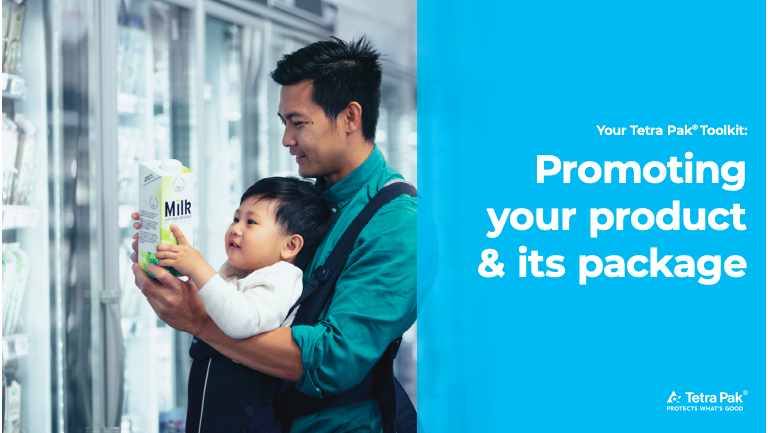
One of the most important ways end consumers learn about packaging sustainability is from the brands that use our carton packaging. Angela Peterson, Communications Manager, Tetra Pak U.S. and Canada, teamed up with Marissa Golison, Director of Sustainability, Compass Group USA, for a two-part series on the unPACKed podcast on how brands can approach sustainability with consumers. They also addressed strategies for on-package sustainability messaging that appeals to consumers.
We used America Recycles Day (Nov. 15) as an opportunity to host educational events for our employees and customers. Employees participated in an interactive webinar on carton recycling that included the latest updates on carton recycling from our sustainability team, carton recycling trivia and a Q&A on recycling with Waste Management, including how their organization values used beverage cartons.
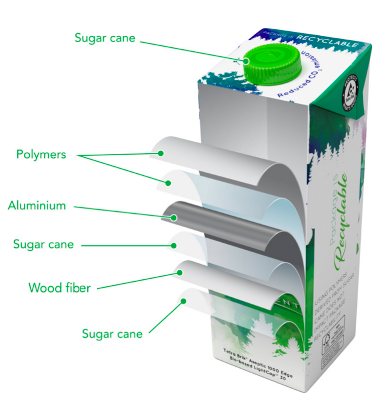
In addition to offering our customers sustainable packaging options, we believe it is important to share the facts on carton recycling so they can share them with consumers. With this in mind, we hosted a customer webinar for America Recycles Day that included an in-depth presentation by our sustainability team on carton recycling today and innovations for the future. The webinar also marked the launch of the customer communications toolkit for all customers in the U.S. and Canada. The toolkit provides guidelines on how brands can communicate all aspects of the sustainability benefits of Tetra Pak® cartons — both on- and off-pack. More than 55 customers attended the America Recycles Day webinar.
Beyond carton recycling, we also hosted two electronics recycling events at our U.S. and Canada headquarters in Denton, Texas. In total, 7,103 pounds (3,222 kilograms) of electronics were collected from employees and around.

Making Cartons Even More Sustainable
As demand for sustainable packaging continues to grow, we’ve expanded our production of shelf-stable cartons that use more renewable materials. Our factory in Denton, Texas, can now produce Tetra Pak® cartons made with sugarcane-based polyethylene (PE) coatings. Cartons with plant-based PE can come with a plant-based cap, also derived from sugarcane. Plant-based PE offers the same recyclability, functionality and food protection as traditional polymers, only made from renewable materials with a lower climate impact.
Tetra Pak® cartons with plant-based PE coatings have previously been available from other Tetra Pak factories in France and Brazil. By bringing this capability to Denton, we’re increasing the share of renewable material in our packages manufactured in North America and making this option more accessible to our local customers.
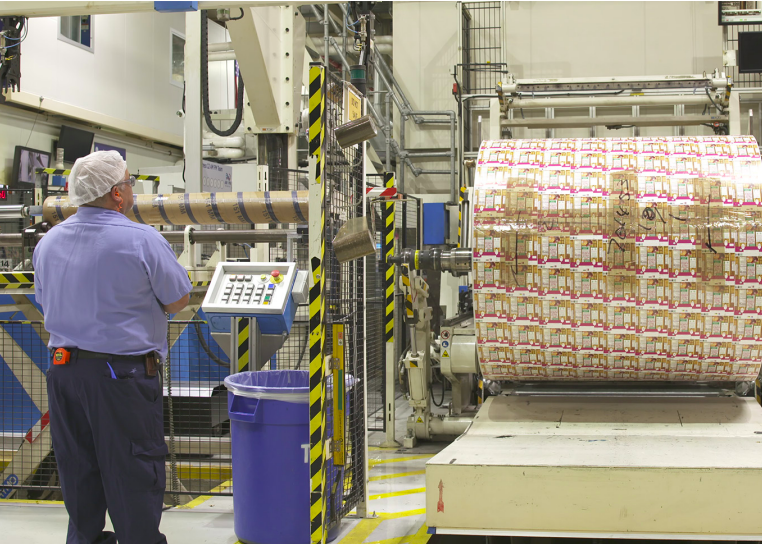
Packaging made with plant-based PE does not require any modifications to existing filling equipment, and customers have the option to display the Bonsucro Chain of Custody Standard seal on-pack.
Another sustainability initiative at the Denton factory is reducing the width of the rolls of paperboard and aluminum foil used to produce carton material. This reduction is possible because the factory can now print closer to the edge of the paperboard, allowing us to reduce waste and maintain the same packaging specifications our customers expect. We anticipate this initiative will reduce our usage of both paperboard and aluminum foil by about 1.5%.
"This is another step forward for our customers dedicated to bringing more sustainable options to their North American consumers."
- Jason Pelz, Vice President of Sustainability, Tetra Pak U.S., Canada, Central America and the Caribbean
Reducing Our Manufacturing Impact
Improving our factories’ operations plays a significant role in reducing Tetra Pak’s overall environmental footprint. We’ve made several improvements to our manufacturing facilities, including:
- Monitoring performance to minimize waste and energy usage. We monitor this using an indicator called Mean Time Between Intervention, or MTBI. This helps us understand the performance of each piece of equipment and how effectively energy is being used.
- Installing a new building management system for chillers and HVAC equipment to monitor usage and ensure we’re using these resources wisely.
- Upgrading lighting to energy-efficient LED bulbs in the warehouse and production areas.

Carton Council of North America
Since 2009, the Carton Council of North America has worked to deliver long-term collaborative solutions to divert valuable cartons from landfills to recycling programs. The organization is made up of the major producers of carton packaging, including Tetra Pak.
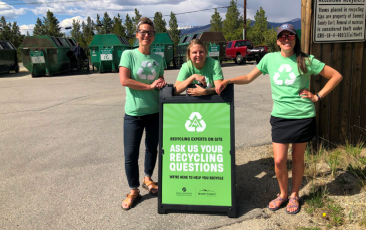
Increasing access to carton recycling
Thanks to the Carton Council’s efforts, carton recycling access is being added to more local recycling programs. In the last 12 months, 408 new communities have added carton recycling, including Fayette County, Kentucky, and several new areas of Georgia including DeKalb and Cobb Counties.
Community Education Awards
The Carton Council of North America launched its first Community Education Awards, a program designed to improve resident communications on recycling, with a special focus on food and beverage cartons. Communities that participated received ongoing information to support their communications and marketing efforts throughout the year, including monthly webinars with communications experts. Participating communities showed that their websites accurately and clearly defined carton recycling, along with at least two other examples of communications and/or marketing activities conducted during the year to promote recycling, including cartons.
Twenty communities participated in the first year and successfully submitted their results, earning them each a $2,000 grant to help with future education efforts.
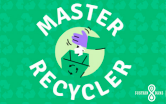
Sustain Dane Master Recycler Program
The Carton Council continued its work with Sustain Dane, a nonprofit organization that works to build a more sustainable future for Dane County, Wisconsin, through its ongoing Master Recycler program. The program helps everyday people become recycling experts so they can share their knowledge with others. More than 44,000 people in the community have learned about recycling through the program, and feedback about the program continues to be positive.
The city of Madison (Dane County), has reported a decrease in recycling contamination from 18.9% to 12.8%. While this may be caused by a variety of factors, the city continues to track progress and explore ways to test the impact of the Master Recycler program.
Sustain Dane is now working with the Latino Academy of Workforce Development in Madison to create a Master Recycler program that is culturally relevant for the Latinx community and offered in Spanish.
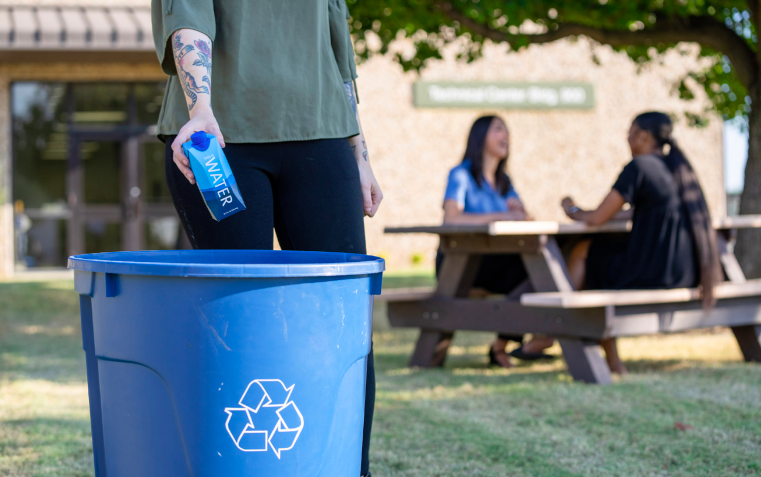
Recycling infrastructure improvements in Michigan
Michigan-based paper mill Great Lakes Tissue Company sought to recycle more food and beverage cartons and to find a better use for the small percentage of polyethylene (plastic) and poly/aluminum in cartons. This led to a collaboration between Great Lakes Tissue Company, the Carton Council of North America, and the Michigan Department of Environment, Great Lakes, and Energy (EGLE), a part of NextCycle Michigan, to help improve the infrastructure for recycling and manufacturing in the state. The Michigan Department of Agriculture and Rural Development (MDARD) also provided matching funds for the project.
Great Lakes Tissue Company received funds to secure new equipment to better handle the polyethylene and poly/aluminum residual from the pulping process used to recycle cartons. In addition to allowing the company to process more cartons, the new equipment removes more water from the polyethylene and poly/aluminum, decreasing its weight significantly and allowing for more efficient transport with lower greenhouse gas emissions. The poly/aluminum residue is currently sent to St. Mary’s Cement in Charlevoix, Michigan, where it offsets the use of coal as fuel.
As part of this process, the company is able to recapture the water and recycle it back into the process for reuse. The new equipment has reduced the water content in the residual material from 65% to 17%.
Read the full Tetra Pak 2022 Sustainability Report.

Tetra Pak
Tetra Pak
Tetra Pak is the world's leading food processing and packaging solutions company. Working closely with our customers and suppliers, we provide safe, innovative and environmentally sound products that each day meet the needs of hundreds of millions of people in more than 160 countries.
With over 24,000 employees around the world, we believe in responsible industry leadership and a sustainable approach to business. Our motto, “PROTECTS WHAT’S GOOD™," reflects our vision to make food safe and available, everywhere.
More information about Tetra Pak is available at www.tetrapak.com
More from Tetra Pak

